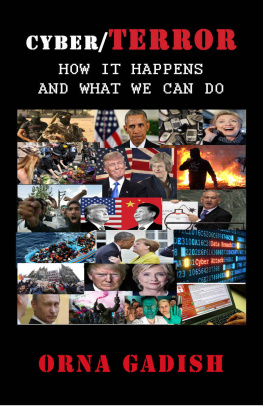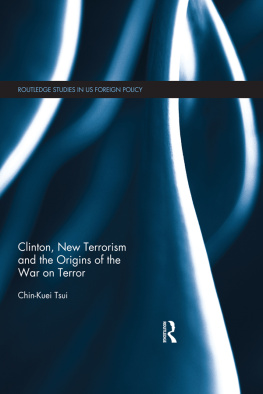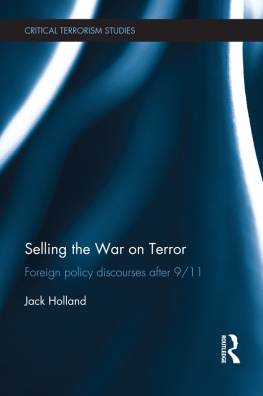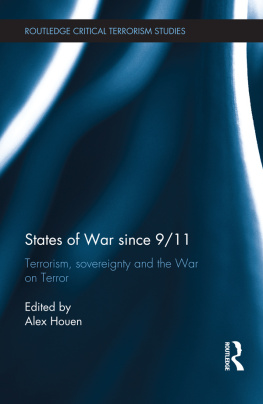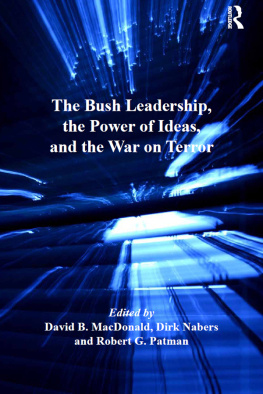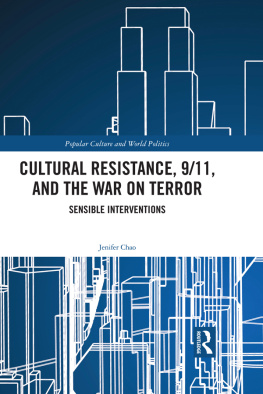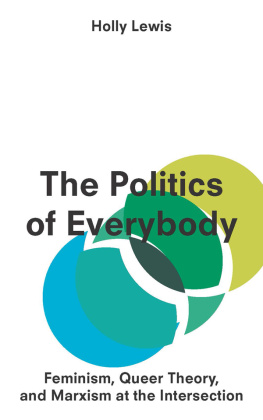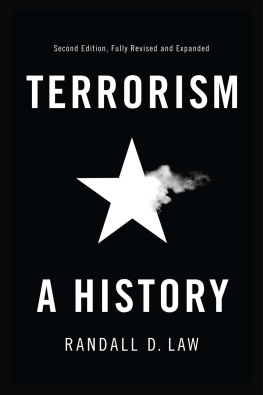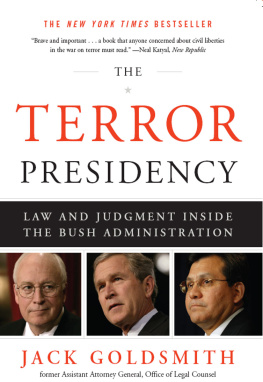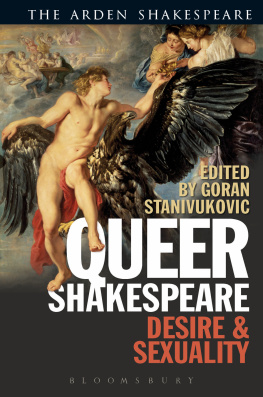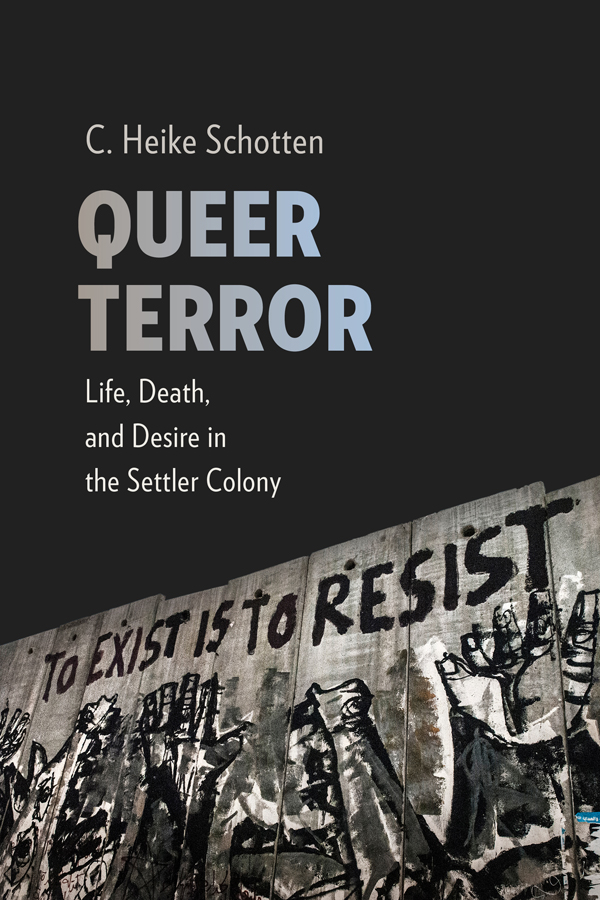Contents
Guide
Pagebreaks of the print version
QUEER TERROR
NEW DIRECTIONS IN CRITICAL THEORY
NEW DIRECTIONS IN CRITICAL THEORY
Amy Allen, General Editor
New Directions in Critical Theory presents outstanding classic and contemporary texts in the tradition of critical social theory, broadly construed. The series aims to renew and advance the program of critical social theory, with a particular focus on theorizing contemporary struggles around gender, race, sexuality, class, and globalization and their complex interconnections.
For a complete list see .
QUEER TERROR
LIFE, DEATH, AND DESIRE IN THE SETTLER COLONY
C. HEIKE SCHOTTEN
Columbia University Press
New York

Columbia University Press
Publishers Since 1893
New York Chichester, West Sussex
cup.columbia.edu
Copyright 2018 Columbia University Press
All rights reserved
E-ISBN 978-0-231-54728-4
Library of Congress Cataloging-in-Publication Data
Names: Schotten, C. Heike, author.
Title: Queer terror : life, death, and desire in the U.S. settler colony / C. Heike Schotten.
Description: New York : Columbia University Press, [2018] | Series: New directions in critical theory | Includes bibliographical references and index.
Identifiers: LCCN 2018007538 | ISBN 9780231187466 (cloth : alk. paper) | ISBN 9780231187473 (pbk. : alk. paper)
Subjects: LCSH: BiopoliticsPhilosophy. | War on Terrorism, 20012009. | FearUnited States. | Marginality, SocialUnited States.
Classification: LCC JA80 .S365 2018 | DDC 320.01dc23
LC record available at https://lccn.loc.gov/2018007538
A Columbia University Press E-book.
CUP would be pleased to hear about your reading experience with this e-book at .
Cover image: MAYSUN
Cover design: Lisa Hamm
Early one morning, when we prayed together for the first time, they threatened to shoot us. But we kept on praying. If they wanted to shoot us, we thought, let them shoot. They didnt. They just yelled and made threats. Then a commander or some high-ranking officer came and spoke to us. He said we would be allowed to pray at the appointed times. Not because he wanted to do us any favors, but because he realized that we would rather die than not say our prayers. And they didnt want us to die because they still needed to interrogate us.
Murat Kurnaz, Five Years of My Life: An Innocent Man in Guant namo , released without charge in 2006
You know who you are? he asked me.
Yes, Sir!
You are a terrorist!
Yes, Sir!
So lets do some math: if you killed five thousand people by your association with al Qaeda, we should kill you five thousand times.
Mohamedou Ould Slahi, Guantanamo Diary , released without charge in 2016
CONTENTS
T his book took a long time to write, much longer than I expected, and it proved even harder to finish than it was to begin. Throughout, I was lucky to have had extraordinary intellectual, political, and personal companionship, all of which supported, sustained, and held me.
At the outset, I learned much from the students with whom I first studied this material, in their unwitting if inevitable role as guinea pigs for their professors own research projects. To this day I am grateful for the observations, insights, essays, and critical analyses of Daniel Finn, Eric Jonas, Peter Jubinsky, Stasha Lampert, Carolyn Terranova, and Penelope Zogheib. Those classes were formative teaching and learning experiences for me, and I have to say: you all just have no idea how brilliant you are.
Later on, a number of very thoughtful and intelligent people read, heard, or talked me through various parts of the manuscript at different stages of its development. All of them had excellent questions, comments, suggestions, and even (on occasion) a well-deserved reprimand or two: Alia Al-Saji, Joe Brown, Tommy Cosgrove, Leila Brannstrom, Kevin Bruyneel, Sam Chambers, Jonathan Cutler, Tommy Davis, Lee Edelman, Daniel Finn, Jude Glaubman, Andrs Henao Castro, Cressida Heyes, Lynn Huffer, Colleen Jankovic, Eric Jonas, J. Khaulani Kauanui, Aaron Lecklider, Jason Lydon, Haneen Maikey, Vijay Prashad, Peter Spiegler, Lisa Stampnitzky, Chlo Taylor, and Shannon Winnubst. It should go without saying that none of these lovely people should be held responsible for the claims, arguments, or viewpoints expressed in this book, all of which are very much my own.
A few stalwart comrades read and commented on the entire manuscript: Simon Glezos, my brave first reader; Leila Farsakh, whose relational devotion and encyclopedic knowledge both continue to astonish me; and Gil Anidjar, who supported this project from the beginning and also helpfully figured out what its title should be. And I am enduringly grateful to Colleen Jankovic for constructing the books index.
If my first book was dedicated to my families of origin (both natal and intellectual), this book is dedicated to my families of choice: to Agatha, Megan, and Brandon, who chose and have been with me for the long haul; and to Leila, Arjun, Jude, Sean (Klaus), and Bhavin, whom I chose and who chose me in this later, Boston chapter of my life. If I am simultaneously always seeking and trying to understand the meaning of unconditional love, I find that these are the people in my life who have best supplied it and, in so doing, taught me the most about it. I am so marvelously, overwhelmingly grateful for each of them.
Finally, and perhaps most of all, this book is for Sarah Dunbar. She of course knows every reason why.
We value life; the terrorists ruthlessly destroy it.
President George W. Bush, November 8, 2001
Judgments, judgments of value, concerning life, for it or against it, can, in the end, never be true: they have value only as symptoms, they are worthy of consideration only as symptoms; in themselves such judgments are stupidities.
Friedrich Nietzsche
Critique doesnt have to be the premise of a deduction that concludes, this, then, is what needs to be done. It should be an instrument for those who fight, those who resist and refuse what is. Its use should be in processes of conflict and confrontation, essays in refusal. It doesnt have to lay down the law for the law. It isnt a stage in programming. It is a challenge directed to what is.
Michel Foucault
A lthough the bleak days of the George W. Bush era are by now well behind us, the War on Terror he notoriously inaugurated nevertheless continues apace. It survived the two consecutive terms of his immediate presidential successor, who, despite inaugural promises to close the prison at Guantnamo Bay, actually expanded the agenda and reach of Bushs signature war through, among other things, open and hidden drone wars, extrajudicial assassinations of US citizens, elaborate FBI entrapments of Arab and Muslim people in so-called terrorism plots, the unprecedented expansion of the surveillance of journalists, everyday citizens, and, in particular, Arab and Muslim communities, and vicious crackdowns on military and security system whistle-blowers (while simultaneously sheltering the CIA and its former directors from punishment for similar crimes as well as for ongoing torture at prisons and black sites around the world). The seeming nonpolicy of President Donald Trump appears to be no less malevolent on this front, as exemplified by, for example, his nakedly Islamophobic refugee/Muslim bans, indiscriminate bombings of Syria and Afghanistan, and forthright commitment to US exceptionalism. Beyond the quagmire of US presidential policy, however, the War on Terror also endures in the copious aftermath of Bushs other signature war, the Iraq invasion in 2003, an aftermath frequently abbreviated by terrorism-obsessed Western media into the short-form ISIS, but whose reach and complexity far exceed this crude discourse and continue to wreak untold havoc on the everyday lives of millions of people throughout West Asia. This suggests, among other things, that the War on Terror, the Islamophobic security culture it has engendered, and the distinctive discourse of terrorism that underpins and anchors it are noteworthy features of recent decades that demarcate not any particular conflict so much as a distinct political era, one with no clear end in sight. As with the detention of enemy combatants at the still-operational Guantnamo Bay gulag, the historical and cultural moment of the War on Terror has become, for all practical purposes, indefinite.


